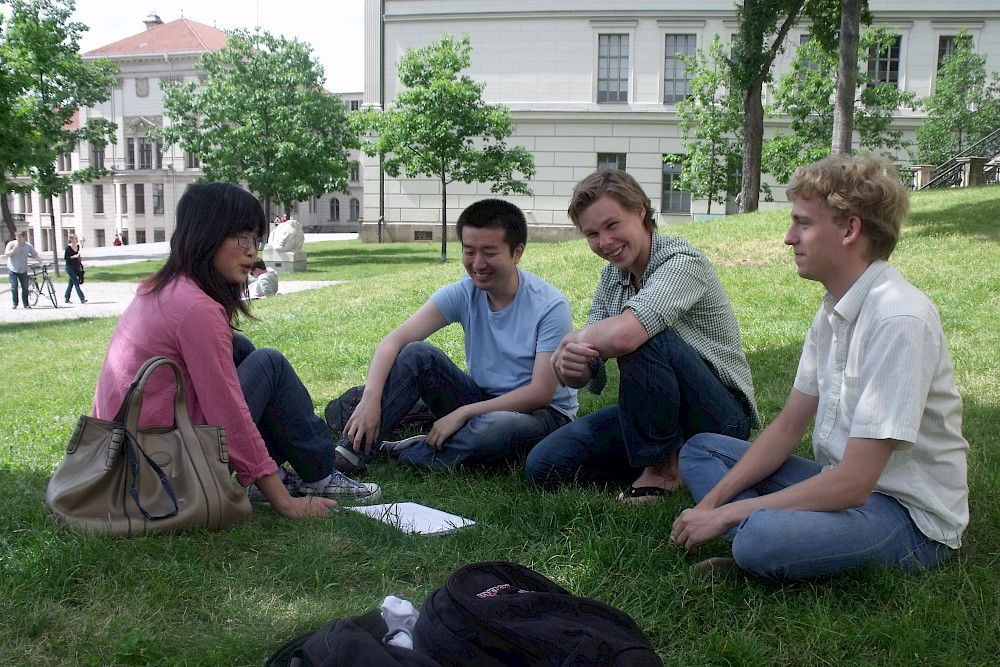Overcoming language barriers by tandem

In fact there is no one riding in front and no one riding in back of this German-Chinese team, and indeed, they have never ridden as such together. The two German and two Chinese students met mid-April at a Tandem meeting organised by MLU’s International Office and held at the Protestant Student Community (ESG). “Many students have enquired through our German courses whether we also could help find them partners to practice with. As a result we started this pilot project and are now supporting 15 teams by providing learning material and assistance with things like varying levels of fluency,” Gritt Eisenkopf from the International Office explains.
The project has been well received by the students. More than 70 people came to the first event. However the idea isn’t new and there have probably been tandems for as long as there have been international students in this city. For years, the online platform “ContactUs” at MLU has been finding “language sponsors” for foreign students. Currently there are around 1,600 international students and tandems are more in demand than ever before. “We are already sure that the project will continue in winter semester,” says Elli Mack who coordinates the tandem teams along with Regine Brandt, Christiane Hess and Gritt Eisenkopf.
For the two medical students Clemens and Felix, who started taking Mandarin (the official Chinese dialect) at the Volkshochschule this semester, the Tandem evening provided them with the opportunity to meet native Chinese speakers and try out their new foreign language. In addition to Chinese and German students, Arabic, Slovakian, Russian, French and Japanese students also came in search of tandem partners. The advantages of such a connection are just as diverse as the nationalities of the tandem students themselves. “We are getting to know the culture and are finally receiving answers to all of our questions,” are just two reasons given by the two German students. And it’s not only the German language that has it’s stumbling blocks, Chinese has them as well. In addition to the thousands of characters, you can easily make an embarrassing mistake by using the wrong tone. Depending on the tone, the word “ma” can mean mother, horse, trouble or a swear word that shouldn’t be used here.
For Li, who is in the second semester of a biomedical engineering degree and who wants to work in Germany after the university, and for Yanling, who wants to stay here at least four years while doing her PhD, their meeting with Clemens and Felix is an important addition to their German courses at the university. “The tandem partners are very patient and you have more time to speak than in the lessons.” Initial progress is already visible. “We hold simple conversations and are learning to tell time and give directions. We’ve been meeting regularly every Wednesday and have not only improved our level of speaking, but also have gotten to know each other better,” say the four students. A few weeks ago they met for a real barbecue on Peissnitz island. A short time later, Yanling invited everyone over for traditional Chinese food. Of course everyone ate with chopsticks.
